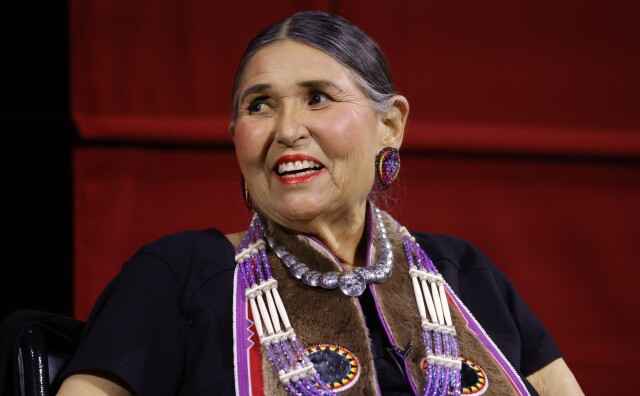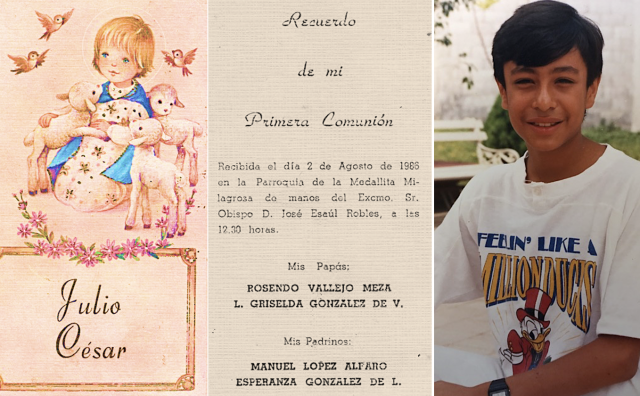It kinda all started with an Instagram post.
My friend José Muñoz began to post about his trip to Mexico. The cute boats in Xochimilco, the iconic Pirámides de Teotihuacan, a video of a gay bar playing the pop divas. I was floored, but excited for José, who is undocumented and a DACA beneficiary. He was back in the place where he was born after having left at three months old. There he was in Mexico City and Jalisco as an openly gay 31-year-old experiencing joy — Brown queer joy.
I wanted to feel the same emotion in my country of origin, too.
But here’s the thing: as DACA recipients, we cannot go back “home” whenever we want. Our status in this country allows us to have a work permit, get a social security number and a driver’s license. We cannot vote, we cannot work certain government jobs and we definitely cannot leave the country as we please.

The rollercoaster of DACA
I’ve been a DACA recipient since 2012, when the President Barack Obama-era program began taking applications.
It was a huge sigh of relief for many folks then, allowing people to go to school, secure good jobs. But a decade has gone by and nothing has changed. The program is actually at a halt.
When Donald Trump became president, he wanted to end it and it went through all sorts of legal battles, reaching the Supreme Court. It was a very nervous time for us and our families. Eventually, the Supreme Court ruled 5-4 in favor of DACA beneficiaries.
But in July 2021, a United States District Court in Texas ruled against DACA, which essentially stopped the program and denied granting new applications to first-time applicants.
Bills have been introduced to provide a pathway to citizenship for DACA recipients and other undocumented folks throughout the years, but they all have failed. Nada.
By the way, I want to note that I’m not alone here. As of September 2022, there were over 168,000 DACA beneficiaries in California, according to the Migration Policy Institute. More than 800,000 of us live across the United States.
If you live in L.A, you likely know someone who has DACA. We’re everywhere — creating small businesses, working at hospitals, teaching or going to school, and writing and editing news coverage.
Advance parole to leave and *hopefully* come back into the U.S.
The way José left the U.S. (and eventually came back in) was through this travel permit called advance parole. It allows certain non-residents to leave the country and re-enter during a certain amount of time for specific reasons — educational, family emergencies and business. You apply with the United States Citizenship and Immigration Services and send them a check with your request.
-
If you’re a DACA recipient or have a loved one who is, please consult with an immigration lawyer before making any decisions. Every case is unique and the help of a professional is highly encouraged.
-
Additional resources:
But even the permit doesn’t guarantee re-entry to the country, so it’s a big decision if you do travel outside the U.S. Another “what if.”
I remember calling up José after he arrived back in Washington, D.C., and asked him straight up, “Girl, were you scared?” We had a long conversation about what the trip meant to him, his reconnection to Mexico and finding himself in a foreign place that’s his tierra, his roots.
“Do it — now is the time,” José urged me.
I began to do my research. I Googled, looked up what other DACA folks were sharing, and I spoke to other people who had done the process. Eventually, I mustered up the courage to call immigration attorneys right before the summer of 2022. (By the way, not all immigration attorneys will take your case so I shopped around.)
Not going to lie, it’s daunting even working with a lawyer. There’s a lot of documentation you need to gather and information you have to access, depending on the circumstances you’re filing.
Bye, L.A. Hello, Mexico
But it happened. I got approved in early February to leave the country and visit family in Veracruz.
The letter came without warning: “This document authorizes a single departure from the United States on or after…”

The visit to my “home country” that I had been waiting for all my life is happening — actually currently as I type this. I’ll get to visit my abuelas, see where I grew up for my first two years and get those chilaquiles I’ve always dreamed of.
Maybe I’ll get a whiff of the same minty, earthy smell my abuela carried in her sweater when she arrived at LAX during her visits. I would always tell her, “Hueles a México,” and hug her to take it in. She would always laugh.
“Pues tú eres de allá, nadie te lo va quitar,” she’d remind me.
“You’re from there, no one can take that away from you.”
I’m excited to find what she’s talking about in Mexico. My cousins are eager to meet me, some for the first time. My friends joke that I will “eat, pray, love” during my stay there.
I kind of just want to connect with my roots, or discover them, hug my grandma and maybe find a part of myself that's been silent.
I'll report back when I do.
Listen to the How to LA podcast for a deeper discussion about what it's like to live in limbo with DACA, and what a trip "home" means to so many in this situation.








